This article was co-authored by Claudia Carberry, RD, MS. Claudia Carberry is a Registered Dietitian specializing in kidney transplants and counseling patients for weight loss at the University of Arkansas for Medical Sciences. She is a member of the Arkansas Academy of Nutrition and Dietetics. Claudia received her MS in Nutrition from the University of Tennessee Knoxville in 2010.
There are 13 references cited in this article, which can be found at the bottom of the page.
This article has been viewed 195,272 times.
Losing weight takes time and effort, but you can achieve your goals! If you want faster results, you may be able to accelerate your weight loss naturally by making healthy choices. Through exercise and dietary changes, you may be able to lose more weight and keep it off. However, check with your doctor before starting a new diet or exercise plan, if you're struggling to lose weight, or if you're managing a health condition.
Steps
Using Exercise to Accelerate Weight Loss
-
1Combine cardio and strength training to burn more calories. A combination of a variety of exercises can help to speed up weight loss. Both cardio and strength training provide you with different types and amounts of calories burned.[1] Remember that to lose weight, you need to burn fat and build muscle.
- Aerobic exercise is primarily used to raise heart rate and burn calories immediately. Types of aerobic exercise include: running, walking, swimming, and biking.
- Strength training helps boost the metabolism because when muscles contract, they burn much more energy than when they are at rest. In addition, strength training helps increase muscle mass, which helps support a faster metabolic rate. The more muscle mass you have, the more calories you can burn, even when you are at rest.[2]
- Types of strength training include: weight lifting, yoga or pilates.
-
2Include interval training to temporarily boost your metabolism. Interval training, which involves both high-intensity and moderate intensity levels, may significantly boost your metabolic rate.[3]
- Aerobic exercise requires you to use more oxygen during your workout, which prompts the metabolism to work at peak efficiency — even after the workout is over (up to 24 hours later).[4]
- Interval training involves short bursts of very high intensity exercises with short bursts of moderate intensity exercises. It's done for a shorter length of time compared to a steady state cardio vascular exercise.[5]
Advertisement -
3Do more activity throughout your day to increase your calorie burn. Another easy way to burn more calories throughout the day is increasing your daily lifestyle activities. These are things you do in your typical day already — like walking to and from your car or doing yard work.[6]
- Increasing your daily lifestyle activity is a simple and quick way to increase your total calories burned each day. Think about your entire day and find areas where you can move more or take more steps.
- Activity that you have throughout your day can be just as important as planned exercise, as it adds to you overall calorie expenditure.
- Try: parking farther away, walking to your destination whenever it's safe and feasible, always volunteering to walk the dog, or taking the stairs more often.
-
4Alternate workouts regularly to challenge yourself. Your body adapts to your fitness routine over time, whether you run at the same pace or lift the same amount of weight each session. This makes your workouts less effective over time. New exercise routines continue to challenge different muscles, ensuring the metabolic rate remains high throughout your weight loss efforts.
- You can also do different types of activity within one workout session. For example, you might spend 20 minutes on the treadmill and then follow that by a 45 minute water aerobics class.
- You do not necessarily need to do a different type of exercise every single day. However, over a few weeks, it's important to mix up your routine.
- Alternating your workouts not only helps weight loss, but also can help prevent boredom with your exercise routine. If you get bored with your workouts you're more likely to give them up.
Eating for Accelerated Weight Loss
-
1Eat more protein to manage your appetite and build muscle. A higher protein diet helps support and promote weight loss. Studies have also shown that this type of diet or eating pattern may also help accelerate weight loss naturally.[7] If you want to lose weight that is actually body fat (and not muscle), you need to maintain your muscle by eating adequate protein.
- Lean protein at every meal helps you feel full longer since it takes longer to digest compared to carbohydrates or fats.[8] This may cause you to consume fewer calories throughout the day. Good sources of lean protein include dairy products, seafood, eggs, legumes, lean beef and tofu.
- Protein also acts to increase thermogenesis (the amount of calories your body burns digesting foods). A higher protein diet may lead to more calories burned naturally.[9]
-
2Fill half your plate with fresh produce. Fruits and vegetables, which are high in fiber and water content, make you feel full longer with minimal caloric intake. These foods are also rich in nutrients that are needed for a well-balanced, healthy diet.
- Include a wide variety of fruits and vegetables each week. Having a varied diet helps you consume adequate nutrients from foods.
- Aim for two to three servings of fruit daily (about 1/2 cup or 1 small piece equals one serving) and four to six servings of vegetables daily (1 cup or 2 cups leafy greens equals one serving).[10] [11]
-
3Limit how much grains you consume. Foods like bread, rice, and pasta are high in carbohydrates. While they can be part of a healthy and balanced diet, studies have shown that decreasing your total intake may help you lose weight faster.[12]
- One serving of grains is 1 ounce or 1/2 cup. Keep your total intake between one to two servings daily.
- If choosing to consume a grain-based food, aim to choose 100% whole grains which are higher in fiber and other nutrients.[13]
- Your body needs carbohydrates to function and operate normally. Plan to consume your carbohydrates from other foods such as fruit, low-fat dairy and starchy vegetables. These foods do contain carbs, but offer a variety of other nutrients like protein, vitamins and minerals.
-
4Make the majority of your meals protein, fruits, and vegetables only. Focusing on these food groups will help support accelerated weight loss.[14]
- Following this eating pattern may help increase your body's metabolism and how many calories it burns as it digests foods.[15]
- Examples of meals and snacks include: greek yogurt with fruit and nuts; a spinach salad with raw vegetables, berries and grilled chicken; a tofu and vegetable stir fry; beef and bean chili with vegetables; or two ham and cheese roll ups with baby carrots.
-
5Avoid dietary supplements or products promising increased metabolism. Many weight loss products promote fast weight loss or large amounts of weight loss in a short amount of time. Generally, this is all hype and these products will not increase metabolism or the speed of your weight loss.[16]
- Any supplements promising weight loss that seems "too good to be true" should be avoided.
- Claims such as "lose ten pounds in one week" or claims saying you don't have to change your lifestyle are generally not effective for weight loss.
Maintaining Weight Loss
-
1Keep track of your weight. Scheduling regular weigh-ins while you're trying to lose weight can help you stay on track and keep the weight off long-term.[17]
- Weigh yourself about one two times weekly. This will help provide an accurate trend of how your weight is fluctuating over time.
- Try to weigh yourself at the same time of day and in the same clothing (or with no clothing). This will help control any normal weight fluctuations.
-
2Sleep seven to nine hours nightly. Sleeping the recommended amount of time and sleeping well is important to overall health. Some studies have shown that inadequate sleep leads to dysregulation of metabolism and can cause weight gain or difficulty losing weight.[18]
- Consider when you typically wake up and decide what time is most appropriate for you to go to bed at night so you get seven to nine hours.
- Also, to get a restful sleep, turn off all lights, devices that make sound and electronics. This will help you get to sleep faster and sleep more soundly.
-
3Build a support group. Studies have shown that support groups may help you lose weight and maintain your weight loss long-term.[19] Finding a support group is a good idea when you're trying to lose weight.
- An easy support group to start with is family, friends or co-workers. If you feel comfortable, talk to them about your weight loss goals.
- You can also find online support groups and forums with others that are also trying to lose weight. This might be a great place, not only for support, but ideas for recipes or other lifestyle changes to help support weight loss.
When to Seek Medical Care
-
1Talk to your doctor before changing your diet or exercise routine. While eating a healthy diet and exercising are important, it's important that you don't make any major changes without checking with your doctor. They'll make sure you make healthy choices that fit your needs. Tell them that you want to lose weight through diet and exercise.[20]
- You may also want to ask your doctor about a referral to a dietitian. A registered dietitian can help you develop a healthy eating plan that includes the food that you like.
-
2See your doctor if you're not losing weight or gain weight. Rarely, you can have a medical condition that prevents weight loss or makes you gain weight. If you're worried that this is the case for you, visit your doctor to discuss your concerns. Tell them about your weight loss efforts as well as any other symptoms you're having.[21]
- Keep track of everything you eat for a few weeks so you can show it to your doctor. Additionally, write down the exercises you do daily so that you can tell your doctor about them.
-
3Work closely with your doctor if you're managing a health condition. If you're losing weight to help with a health condition, like diabetes, see your doctor regularly to monitor your progress. They can also make sure you're getting the help you need to be successful.[22]
- If your doctor has prescribed you medication, keep taking it until your doctor says it's okay to stop.
-
4Ask about weight loss medication or surgery if you're interested. Sometimes it's hard to lose weight on your own. If you're struggling to lose weight and want help, talk to your doctor about treatments you can try. You may be able to take medication or get weight loss surgery to help you meet your goals.[23]
- Your doctor can help you decide if weight loss treatments are right for you.
Expert Q&A
-
QuestionHow does weightlifting help with weight loss?
 Julian Arana, M.S.eD., NCSF-CPTJulian Arana is a Personal Trainer and the Founder of B-Fit Training Studios, a personal training and wellness set of studios based in Miami, Florida. Julian has over 12 years of personal training and coaching experience. He is a certified personal trainer (CPT) by the National Council on Strength and Fitness (NCSF). He has a BS in Exercise Physiology from Florida International University and an MS in Exercise Physiology specializing in strength and conditioning from the University of Miami.
Julian Arana, M.S.eD., NCSF-CPTJulian Arana is a Personal Trainer and the Founder of B-Fit Training Studios, a personal training and wellness set of studios based in Miami, Florida. Julian has over 12 years of personal training and coaching experience. He is a certified personal trainer (CPT) by the National Council on Strength and Fitness (NCSF). He has a BS in Exercise Physiology from Florida International University and an MS in Exercise Physiology specializing in strength and conditioning from the University of Miami.
Certified Personal Trainer Lifting weights boosts your metabolism and helps you build muscle, which can make your weight loss look and feel more substantial. If you don't lift weights, you may actually lose muscle mass while you're shedding pounds, which is the opposite of what you want.
Lifting weights boosts your metabolism and helps you build muscle, which can make your weight loss look and feel more substantial. If you don't lift weights, you may actually lose muscle mass while you're shedding pounds, which is the opposite of what you want.
Warnings
- Before undertaking any sort of weight loss program, especially those that involve high-intensity workouts or very low-calorie diets, talk to your doctor to be sure the program is safe for you.⧼thumbs_response⧽
- Beware that some ways listed in movies and films of losing weight isn’t realistic; for example, not eating is not going to help you lose weight fast. It’s going to make you become unhealthy fast.⧼thumbs_response⧽
References
- ↑ http://www.mayoclinic.org/healthy-lifestyle/fitness/in-depth/interval-training/art-20044588
- ↑ http://www.mayoclinic.org/healthy-lifestyle/weight-loss/in-depth/metabolism/art-20046508
- ↑ http://www.ncbi.nlm.nih.gov/pubmed/19088769
- ↑ http://www.mayoclinic.org/healthy-lifestyle/fitness/in-depth/interval-training/art-20044588
- ↑ http://www.mayoclinic.org/healthy-lifestyle/fitness/in-depth/interval-training/art-20044588
- ↑ http://www.mayoclinic.org/healthy-lifestyle/weight-loss/in-depth/metabolism/art-20046508?pg=2
- ↑ http://ajcn.nutrition.org/content/87/5/1558S.long
- ↑ http://ajcn.nutrition.org/content/87/5/1558S.long
- ↑ http://ajcn.nutrition.org/content/87/5/1558S.long
- ↑ http://www.choosemyplate.gov/vegetables
- ↑ http://www.choosemyplate.gov/fruits
- ↑ http://ajcn.nutrition.org/content/87/5/1558S.long
- ↑ http://www.mayoclinic.org/healthy-lifestyle/nutrition-and-healthy-eating/in-depth/whole-grains/art-20047826
- ↑ http://ajcn.nutrition.org/content/87/5/1558S.long
- ↑ http://ajcn.nutrition.org/content/87/5/1558S.long
- ↑ http://www.mayoclinic.org/healthy-lifestyle/weight-loss/in-depth/metabolism/art-20046508?pg=2
- ↑ https://www.psychologytoday.com/blog/minding-the-body/201312/daily-weighing-may-help-manage-your-weight
- ↑ http://www.ncbi.nlm.nih.gov/pmc/articles/PMC2929498/
- ↑ http://www.apa.org/topics/obesity/support.aspx
- ↑ http://www.mayoclinic.org/healthy-lifestyle/weight-loss/in-depth/metabolism/art-20046508?pg=1
- ↑ https://www.nhs.uk/live-well/healthy-weight/how-your-gp-can-help-you-lose-weight/
- ↑ https://www.nhs.uk/live-well/healthy-weight/how-your-gp-can-help-you-lose-weight/
- ↑ https://www.nhs.uk/live-well/healthy-weight/how-your-gp-can-help-you-lose-weight/
About This Article
The fastest and healthiest way to lose weight is by combining exercise with the right diet. Make sure that your fitness routine consists of both cardio exercise, such as running or swimming, and weight training, such as yoga or pilates. Additionally, try performing your cardio exercise at both high and mid-intensity levels, which can increase your metabolism. Avoid carbohydrates and consume plenty of fruit, vegetables and high-protein foods. For more tips from our Dietician reviewer, including how to maintain your weight loss, read on!
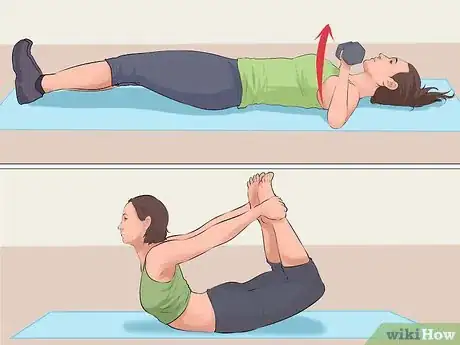
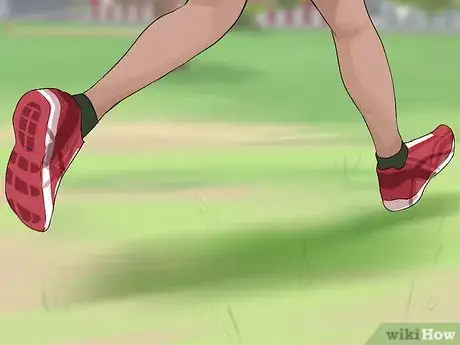
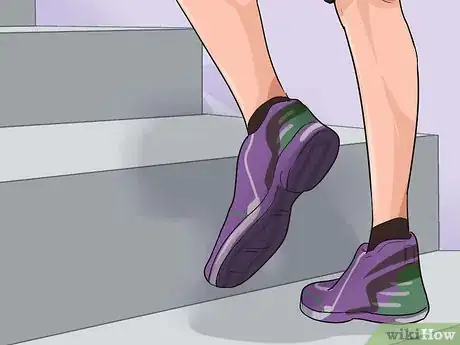
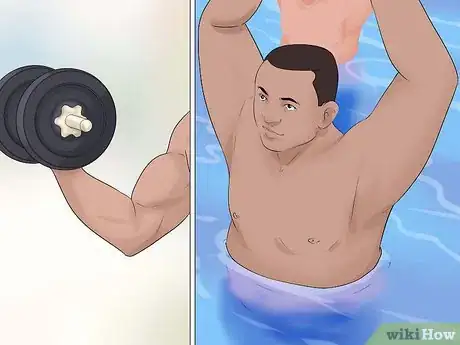
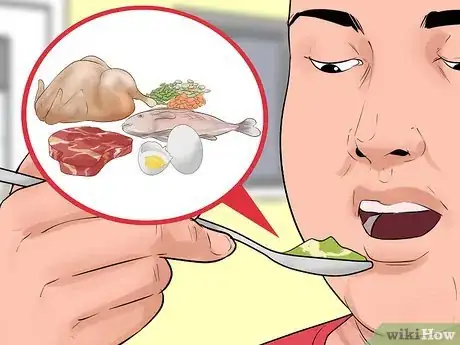
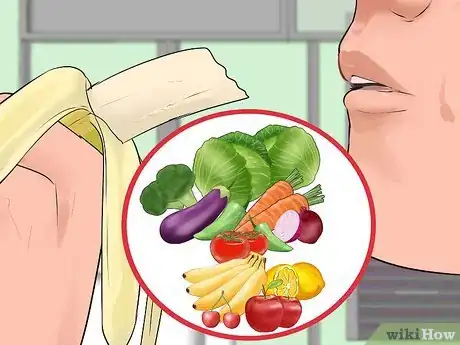
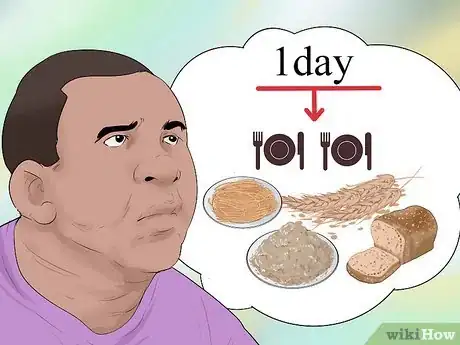
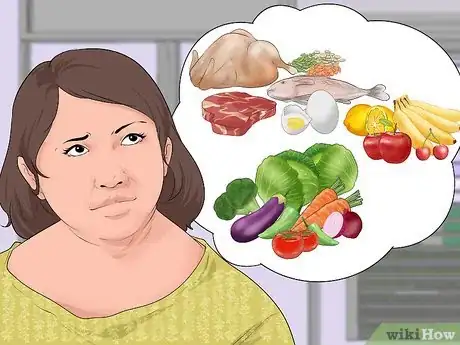
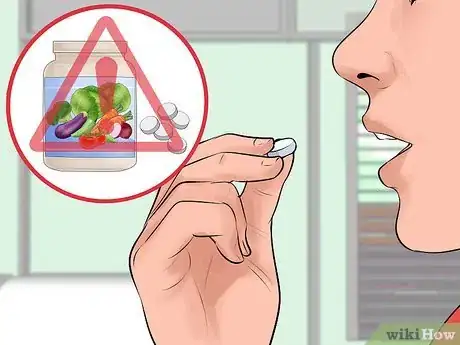
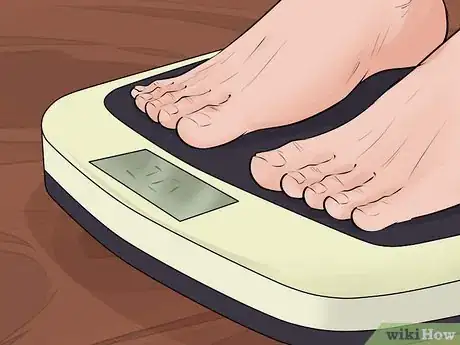
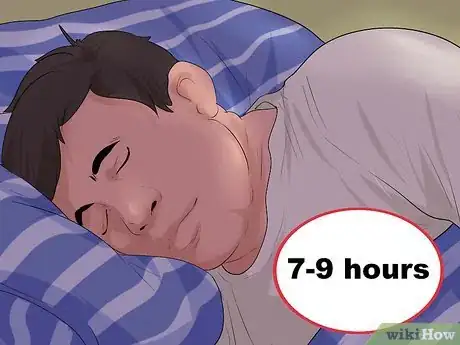
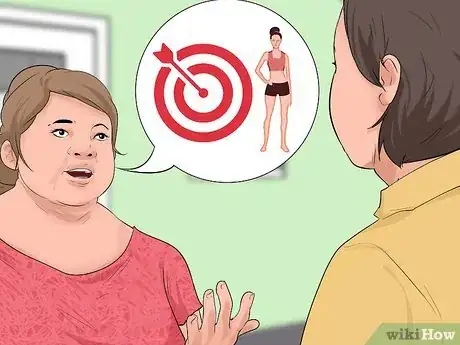
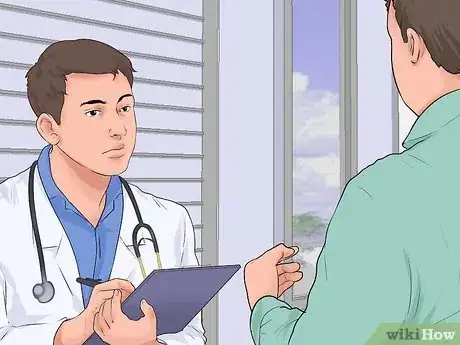


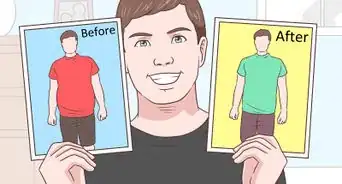
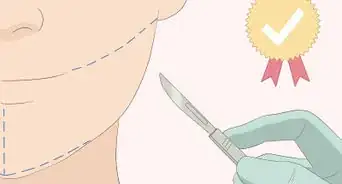

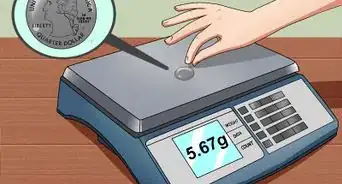



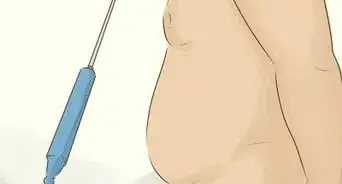
















































Medical Disclaimer
The content of this article is not intended to be a substitute for professional medical advice, examination, diagnosis, or treatment. You should always contact your doctor or other qualified healthcare professional before starting, changing, or stopping any kind of health treatment.
Read More...